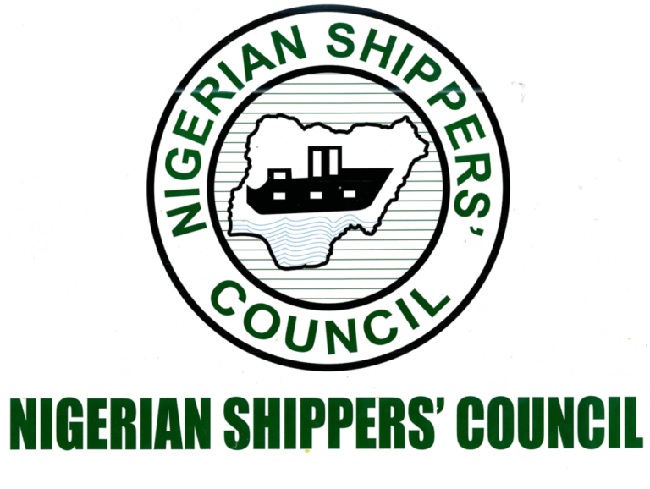The Nigerian Shippers Council has explored that it reopened its area office in Minna, the Niger state capital nearly three years after it was shut for proper coordination of economic activities in the state.
The executive secretary of the council, Emmanuel Jime said the Minna area office was reopened to facilitate economic opportunities especially with the coming of Baro Inland Port.
He said the area office was shut in March 2020 in compliance with the directive of the Federal Ministry of Transportation, mandating her agencies to reduce overhead cost.
Jime declared that “The reason for the re-opening of Minna Area Office was informed by the economic potentials of the state and the presence of active shippers within Niger State and its environs. The state is well known for the abundance of cash crops with high exportable values such as Cashew nut, Shea butter, ginger, yam, etc. Also, mineral resources like coal, iron ore, tin, uranium, gold, gypsum, salt, silver are found in commercial quantity in the state.”
“Nevertheless, having carefully considered the economic viability and potentials of Niger state and its environs, particularly with the growing clusters of export processing companies in the zone, the council re-considered the need for the resumption of her activities and services in Niger state.”he added
He said it is meant to ensure accessibility to quality shipping services and provision of trade related information to stakeholders in Niger State in view of the expected operation at the Baro Port.
Jime recalled that the Minna Area office was first commissioned in 1999 and was attending to the needs and aspirations of stakeholders in Niger and some parts of FCT before it was shut down.
Niger state governor Alhaji Abubakar Sani Bello represented by the secretary to the state government SSG Ahmed Matane lauded the reopening of the office and assured of government’s support.Findings of the survey showed that, States with the least health insurance coverage for children under-five are Kebbi, with only one child covered, out of 1,030 children analysed in the survey; Taraba has only two children covered by any health insurance, out of 628 children analysed by the survey and Abia has only two children covered by health insurance out of 485 children analysed by the survey.
Meanwhile, states like Lagos has up to 137 children, representing 7.9 per cent of the 1,743 children analysed by the study, are covered by any health insurance and Delta state has up to 124 children, representing 19.9 per cent of the 623 children analysed by the survey are covered by any health insurance.
To improve health insurance coverage, stakeholders have called for the support of all Nigerians including stakeholders in the nation’s Health sector in ensuring a successful implementation of the mandatory Health Insurance as stipulated in the National Health Insurance Authority (NHIA), for the achievement of Universal Health Coverage.
The deputy general manager and coordinator, Lagos state Office, NHIA, Mrs Aisha Haruna Abubakar, while speaking with LEADERSHIP, at the 2022 national Symposium/Awards of the Health Writers Association of Nigeria (HEWAN) in Lagos said, the reason for the enactment of the National Health Insurance Authority Act 2022 which birthed, was to improve health insurance coverage for all, irrespective of where one is living or financial status.
Giving the background of the NHIA Act and its roles to the achievement of the universal health coverage, the deputy director said: “the signing of NHIA Act 2022 bestows the function to promote, integrate and regulate all health insurance schemes that operate in Nigeria; ensure that health insurance is mandatory for every Nigerian and legal resident and enforce the basic minimum package of health services for all Nigerians across all health insurance schemes operating within the country.
“Others are; to promote, support and collaborate with States through State Health Insurance schemes to ensure access to quality healthcare; ensure the implementation of the Basic Health Care Provision Fund as rquired by the National Health Act and grant accreditation and re-accreditation to Health Management Organizations (HMOs), Third Party Administrators (TPAs) and Mutual Health Association (MHAs) and HCFs and monitor their performances.”
She said, the Act gives approval for the establishment of the Special State Health Insurance Authority (SSHIA) and Federal Capital Territory Scheme even as it highlights that “Mandatory health insurance for every Nigerian and legal residents.
“The Act establishes states and FCT Schemes. This is to strengthen collaboration between NHIA and States for the achievement of Universal Health Coverage Sec 13(1); Establishment of a Scheme for the coverage of employees of Ministries, Departments and Agencies (MDAs) in the Federal Civil Service and other relevant groups Sec 13(3) and Implementation of Basic HealthCare Provision Fund in collaboration with States to achieve Universal Health Coverage Sec 24(1)-(6).”
Abubakar revealed that the 2022 Act also included the Third Party Administrators (TPAs) and Mutual Health Association (MHAs) for continuous quality assurance, community mobilisation and sensitisation and any other roles that they are engaged to perform Section 34(4) & 35(1).
Abubakar said, the law has also given approval for the establishment of vulnerable group fund which, according to her “gives hope to 83 million vulnerable Nigerians.”
President, Healthcare Providers Association of Nigeria (HCPAN) Dr. Jimmy Arigbabuwo, said the world is suffering from emerging and re-emerging infectious diseases, adding that, enforcing compulsory health insurance in Nigeria will help to protect Nigerians from dying as a result of diseases that could be prevented if they have access to quality health services.





